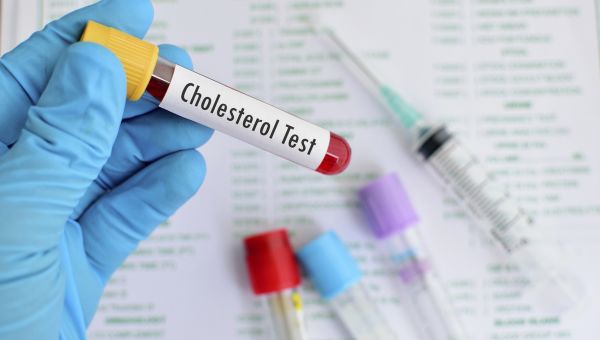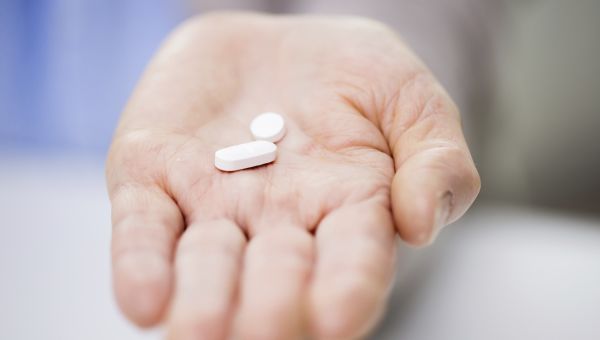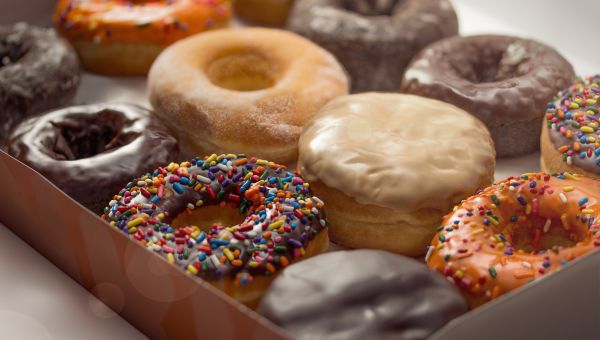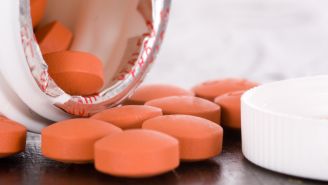6 common cholesterol mistakes
Skipping healthy fats? Staying too long at happy hour? These everyday slipups can undermine your heart health.

Though our bodies need cholesterol, too much of a certain kind can clog arteries and cause heart disease, the leading killer of adults in the United States.
But there’s good news: You can take steps to lower your cholesterol and your risk of heart attack and stroke. Start by following an overall healthy diet, not smoking, and avoiding these everyday health mistakes.

You Don't Know Your Numbers
High cholesterol has no symptoms, so knowing your numbers is imperative to ensuring your cholesterol levels are in a healthy zone. Ideal numbers for adults ages 20 or older are considered to be:
- Total cholesterol: less than 200 milligrams per deciliter (mg/dL)
- High-density lipoprotein (HDL), or "good" cholesterol: 60 mg/dL or higher
- Low-density lipoprotein (LDL), or "bad" cholesterol: lower than 100 mg/dL
- Triglycerides: below 150 mg/dL
Triglycerides are a type of fat found in the blood; high levels raise your risk of heart disease. Risk factors for elevated triglycerides include overdoing alcohol, smoking, and consuming excess calories, especially in the form of sugar or refined carbohydrates.
To learn your numbers, you should be regularly screened by a healthcare provider (HCP). The National Heart, Lung and Blood Institute recommends screening:
- Every five years for children beginning between the ages of 9 and 11
- Every one to two years for men ages 45 to 65 and women ages 55 to 65
- Annually for all adults over age 65
- More frequently if you have heart disease risk factors, like a family history of heart disease or high cholesterol, diabetes, or obesity
Based on your total cholesterol and other risk factors, an HCP can work with you to determine the testing regimen that’s best for you.

You Don't Get Enough Exercise
If you’re actively trying to manage your cholesterol levels, get moving. Federal guidelines recommend that adults get at least 150 minutes of moderate-intensity or 75 minutes of vigorous-intensity physical activity each week. Physical activity increases HDL (“good”) cholesterol and promotes weight loss; carrying excess weight is another factor in high cholesterol.
Begin by exercising several times a week for 10 to 20 minutes and lengthening your workout over time. Not sure how to jump-start your workout regimen? Speak with an HCP about activities suited to your abilities and lifestyle. Biking, swimming, jogging, or walking are popular options. You can also reach out to a personal trainer or try taking classes online or in person.

You Go Heavy On Alcohol
The Centers for Disease Control and Prevention (CDC) recommends women have no more than one drink a day, and men have no more than two. If you don’t drink alcohol, don’t start for the purported health benefits. Having too much can raise your triglycerides and LDL (“bad”) cholesterol levels, contributing to health problems. Heavy alcohol use can also increase the risk of stroke, heart failure, high blood pressure, among other medical issues.

You Skip Your Medication
You may be prescribed medication if you have high cholesterol. Your HCP will consider factors including your levels, family history, lifestyle, age, and risk of heart disease to determine your best course of treatment. You are more likely to get a prescription if:
- You have heart disease, peripheral artery disease, or previously had a stroke
- Your LDL cholesterol is 190mg/dL or higher
- You are over the age of 40 and have diabetes or are at high risk of heart disease
More than 32 million Americans take statins—drugs prescribed for lowering LDL cholesterol—and the number has only increased over time. Unfortunately, about half of statin users report stopping their medication within the first year. Statins are highly effective and only prescribed when necessary, so sticking to your prescription regimen is vital.
If you take statins and would like to discontinue your use, speak with an HCP. They can address issues such as side effects or financial concerns, as well as explore other options.

You Don't Watch Your Sugar
Fatty red meats and fried foods are associated with increased LDL cholesterol levels, but what about sugar? According to the American Heart Association, Americans consume much more than recommended—up to three times as much daily, equaling about 60 pounds of added sugar each year.
Added sugars can indirectly contribute to high cholesterol by increasing your weight. If you have elevated cholesterol levels, be wary of rising numbers on the scale.
High-sugar diets are also directly linked to high cholesterol. One frequently cited study from 2010 in the Journal of the American Medical Association found that increasing sugar in the diet lowered good cholesterol and increased triglycerides in both men and women, and increased bad cholesterol in female participants.

You Forget About Good Fats
To reduce LDL cholesterol, avoid trans fats. Artificial trans fats were banned by the U.S. Food & Drug Administration in 2015, though they can be found in fried foods and occur in small amounts in certain meat and dairy products. Take care to also limit saturated fats, found in meat, dairy products, and oils including palm oil and coconut oil.
To increase HDL cholesterol and lower triglyceride levels, pick foods rich in omega-3 fatty acids—healthy fats that the body can’t make on its own. One of the best sources of omega-3s is fatty fish, so swap your steak for salmon the next time you are dining out. Consider exchanging your French fries for a leafy green salad with walnuts, as well—they’re also high in omega-3 fats.

American Heart Association. How much sugar is too much? 2022. Page accessed June 22, 2022.
American Heart Association. Prevention and Treatment of High Cholesterol (Hyperlipidemia). November 11, 2020. Accessed June 28, 2022.
American Heart Association. Heart-Health Screenings. March 22, 2019. Accessed June 28, 2022.
American Heart Association. Saturated fats. Revised November 1, 2021. Accessed June 28, 2022.
American Heart Association. Trans Fats. March 23, 2017. Accessed June 29, 2022.
Centers for Disease Control and Prevention. Cholesterol-lowering Medicine. Page updated June 24, 2021.
Centers for Disease Control and Prevention. Cholesterol: Preventing High Cholesterol. September 8, 2021. Accessed June 28, 2022.
Mayo Clinic. Top 5 lifestyle changes to improve your cholesterol. August 28, 2020. Accessed June 28, 2022.
Mayo Clinic. High cholesterol. July 20, 2021. Accessed June 28, 2022.
Maningat P, Gordon BR, Breslow JL. How do we improve patient compliance and adherence to long-term statin therapy? Current Atherosclerosis Reports. 2013 Jan;15(1):291.
Grundy SM, Stone NJ, et al. 2018 AHA/ACC/AACVPR/AAPA/ABC/ACPM/ADA/AGS/APhA/ASPC/NLA/PCNA Guideline on the Management of Blood Cholesterol: A Report of the American College of Cardiology/American Heart Association Task Force on Clinical Practice Guidelines. Circulation. Circulation. 2019;139:e1082–e1143.
Centers for Disease Control and Prevention. Dietary Guidelines for Alcohol. Page reviewed April 19, 2022. Accessed June 28, 2022.
Centers for Disease Control and Prevention/National Center for Health Gu Q, Paulose-Ram R, Burt VL, Kit BK. Prescription cholesterol-lowering medication use in adults aged 40 and over: United States, 2003–2012. NCHS data brief, no 177. Hyattsville, MD: National Center for Health Statistics. 2014.
MedlinePlus. Cholesterol levels. April 4, 2022. Accessed June 29, 2022.
MedlinePlus. Triglycerides. October 7, 2020. Accessed June 29, 2022.
National Heart, Lung and Blood Institute. Blood Cholesterol Diagnosis. Page updated March 24, 2022. Accessed June 28, 2022.
U.S. Department of Health and Human Services. Physical Activity. Guidelines for Americans 2nd Edition. 2018. Accessed June 28, 2022.
Welsh JA, Sharma A, et al. Caloric Sweetener Consumption and Dyslipidemia Among US Adults. JAMA. 2010;303(15):1490–1497.
More On


video

article

slideshow


video


video
